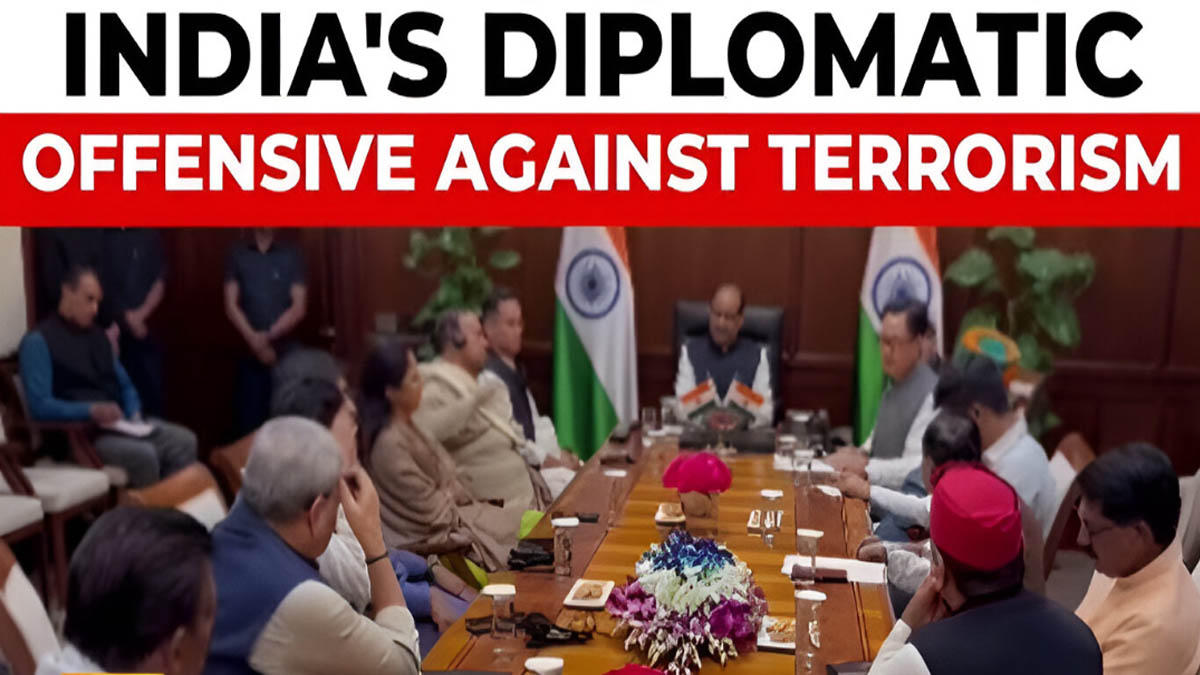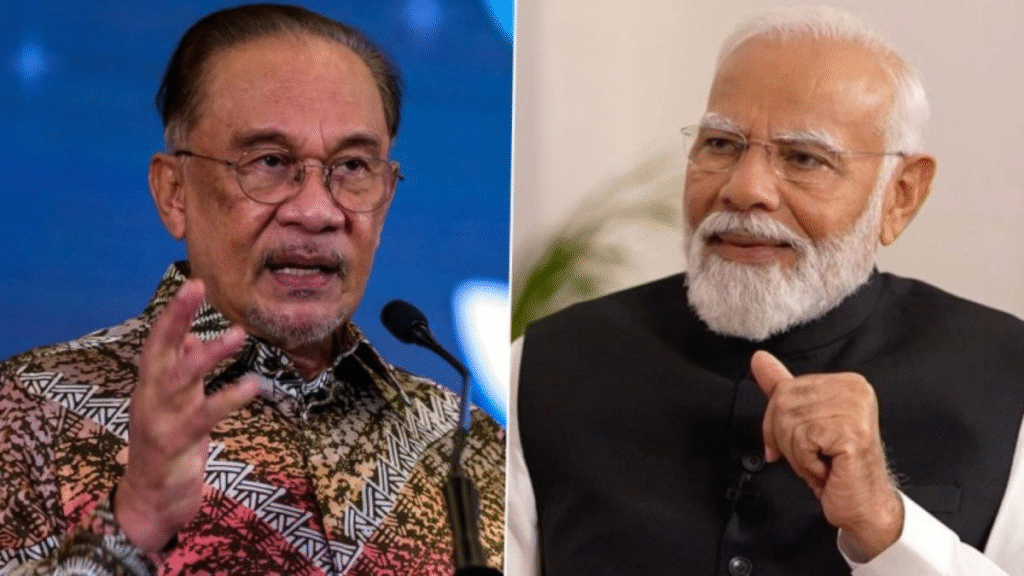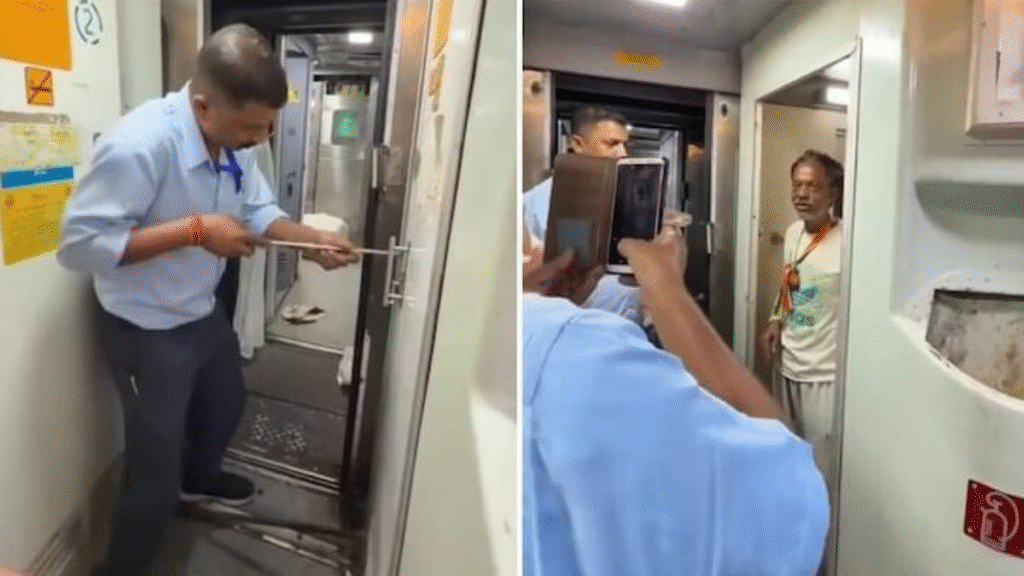Now Reading: India’s Broadened Anti-Terror Outreach: A Strategic Diplomatic Offensive
-
01
India’s Broadened Anti-Terror Outreach: A Strategic Diplomatic Offensive
India’s Broadened Anti-Terror Outreach: A Strategic Diplomatic Offensive

India has launched a significant diplomatic initiative, extending its anti-terror outreach to 33 countries worldwide. This comprehensive campaign, driven by multi-party parliamentary delegations, aims to solidify international consensus against terrorism and present India’s resolute stance on the issue. The strategic selection of these 33 nations reflects a calculated approach, encompassing key global players, influential regional powers, and countries directly impacted by or vulnerable to cross-border terrorism.
The Genesis of the Outreach: Responding to a Persistent Threat
The recent decision to broaden this outreach comes in the aftermath of a terror attack in Pahalgam, which underscored the persistent threat of cross-border terrorism faced by India. While India responded militarily with “Operation Sindoor,” targeting terror camps, the diplomatic offensive is crucial to dismantle the support structures for terrorism on a global scale. It seeks to counter narratives that might seek to legitimize or obfuscate the actions of state sponsors of terrorism, particularly from across India’s borders.
Criteria for Selection: A Multifaceted Approach
The selection of these 33 countries is not arbitrary but based on several strategic considerations:
- UN Security Council Members: A significant portion of the selected countries are either current or future members of the United Nations Security Council (UNSC). This includes the five permanent members (China, France, Russia, the United Kingdom, and the United States) and a number of non-permanent members. Engaging with these nations is crucial to garner support for India’s counter-terrorism resolutions and initiatives within the most influential global security body. With Pakistan also being a rotating member of the UNSC for the next 17 months, India’s proactive engagement aims to preempt and counter any anti-India claims and propaganda that Pakistan might present.
- Globally Influential Voices: The list also includes countries whose voices carry considerable weight on the international stage, even if they are not permanent members of the UNSC. These nations, by virtue of their economic, political, or strategic importance, can significantly contribute to shaping global discourse and policy on counter-terrorism.
- Regional Partners and Neighbors: The outreach extends to important regional partners and neighboring countries with whom India shares security concerns or has established counter-terrorism cooperation mechanisms. This includes nations in Southeast Asia (e.g., Indonesia, Malaysia, Japan, South Korea, Singapore), Central Asia, and the Middle East (e.g., UAE, Egypt), recognizing that terrorism is a transnational threat requiring localized and regional collaboration.
- Countries with Shared Values and Experiences: India is likely prioritizing countries that share its commitment to a “zero-tolerance policy” against terrorism and have themselves experienced or are acutely aware of the dangers of extremist ideologies and cross-border terror.
- Combating Terror Financing and Emerging Threats: The discussions are also expected to focus on new and emerging challenges in counter-terrorism, including the use of technology for terrorist purposes (e.g., drones, cyber space), the financing of terrorism (e.g., through cryptocurrencies, hawala), and online radicalization. Collaborating with countries that have expertise in these areas is vital for developing effective counter-strategies.
The Diplomatic Strategy: A Unified National Voice
A notable aspect of this outreach is the inclusion of all-party parliamentary delegations. This demonstrates a unified national consensus against terrorism, transcending domestic political differences. By sending representatives from various political parties, including the ruling BJP and opposition parties like Congress, NCP, DMK, and Shiv Sena, India aims to convey a powerful message to the international community: that its fight against terrorism is not a partisan issue but a matter of national interest and security.
These delegations are tasked with meeting top political leaders, including Prime Ministers and Foreign Ministers, as well as parliamentarians, opposition leaders, intellectuals, journalists, and the Indian diaspora. They are armed with classified dossiers and intelligence material, providing documented proof of Pakistan’s alleged links to terror networks and its role in fostering cross-border terrorism. The objective is to provide first-hand accounts, expose the terror infrastructure, and advocate for strong counter-terror frameworks.
Long-Term Vision: Isolating State Sponsors of Terrorism
India’s anti-terror outreach is a proactive and multi-pronged diplomatic offensive with a clear long-term vision: to internationally isolate state sponsors of terrorism and dismantle their networks. By fostering deeper cooperation, sharing intelligence, and building capacity with these 33 nations, India seeks to build a formidable global front against a threat that respects no borders. The message is unequivocal: terrorism anywhere is a threat to peace everywhere, and those who enable it must be held accountable.









